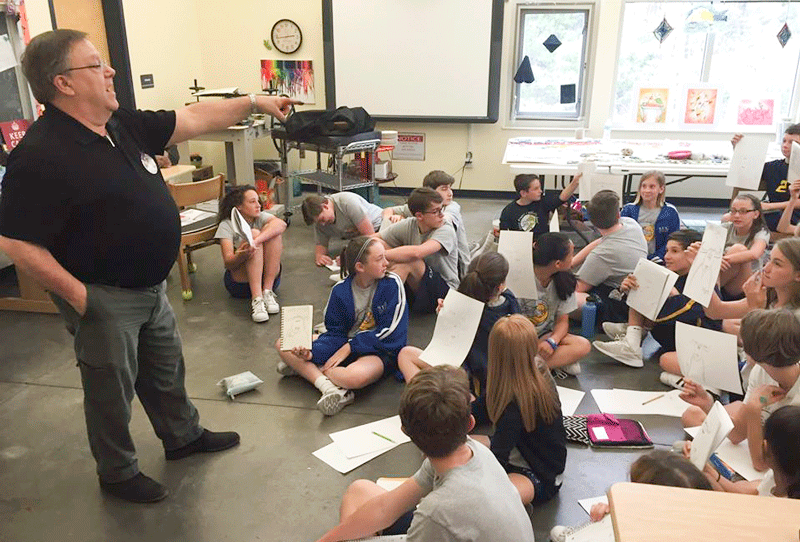
Schools under the umbrella of the Diocese of Charleston’s Catholic Schools Office recently underwent an external review to determine if diocesan-wide accreditation would be renewed — and they passed with flying colors.
The diocese first received accreditation in 2012 from the Southern Association of Colleges and Schools after several years of intense planning and hard work. At the time, 30 schools, plus private school St. Francis Xavier in Sumter, were accredited.
During the recent accreditation review process, which is conducted every five years to make sure schools are following guidelines for continual improvement in education, three new schools were brought under the umbrella: Holy Trinity in Longs, John Paul II in Ridgeland, and St. Elizabeth Ann Seton in Myrtle Beach, said Sandra Leatherwood, superintendent of Catholic Schools.
Overall, the external review team gave the diocese scores that exceeded the network average, which includes reviews of schools across the globe over the past year.
Findings at the end of the review include commendations for things they do well and recommendations in areas that need improvement.
In the report released April 5, the large majority of educational levels that the team examined fell in the range of acceptable standards, Leatherwood said. The review also highlighted four areas that exceeded expectations — deemed powerful practices — and noted three improvement priorities that must be addressed in the next year.
Leatherwood said each area flagged for improvement had already been identified in the diocese’s recent strategic initiative, a five-year plan designed to revitalize and strengthen Catholic schools in the state.
The improvement priorities are:
- To develop and implement a formal teacher induction program. Leatherwood said this is about providing consistency in teacher training. A diocesan program will be used by each school for the training and orientation of new teachers.
- Incorporate the use of testing data to guide professional development opportunities for teachers. Leatherwood said the diocese has already made the switch to MAP testing, which is given several times a year, and will use the testing results to provide improved instruction to students.
- Implement strategies to engage students, such as hands-on and collaborative learning techniques.
Powerful practices included strong Catholic identity that is mission focused, a spirit of collaboration among the principals, a well-articulated strategic plan, and supportive leadership in the diocese from the bishop, secretary of education and superintendent.
In the course of the investigation, the review team visited seven schools and spoke to 116 people, including 22 students.
The process to earn diocesan-wide accreditation was initiated in 2008, under then-Superintendent Sister Julia Hutchison, who explained that accreditation is a routine concern of parents.
At the time, Bishop Robert E. Guglielmone said it is an important tool to draw students who might otherwise go to public or charter schools.
“All of the public schools in our state are SACS accredited through the AdvancEd District Accreditation Process,” he stated. “Having all of our diocesan Catholic schools accredited through this process will mean that our schools have not only met the same standards as the public schools in our state, but that they go beyond by also meeting the additional Catholic Identity Standard that the process demands of Catholic schools.”
Photo provided: Illustrator Michael P. White leads students in a drawing activity at St. Francis School on Hilton Head Island April 3. St. Francis was one of seven schools visited by a review team during the accreditation renewal process.

